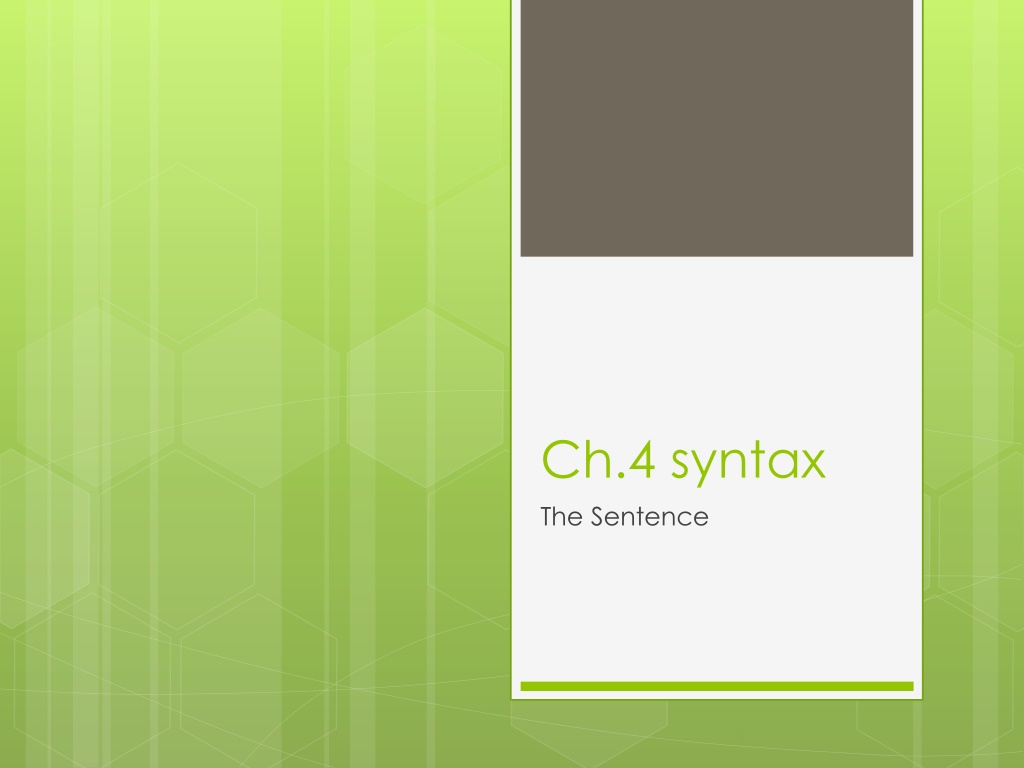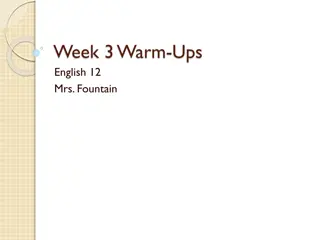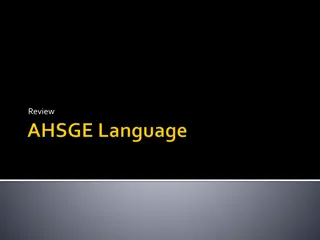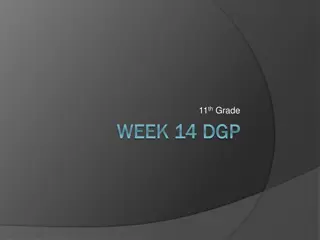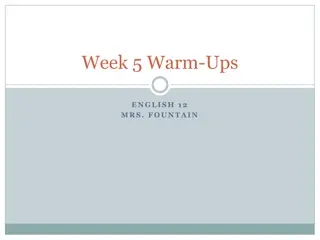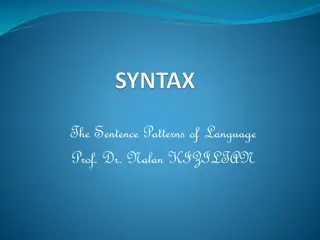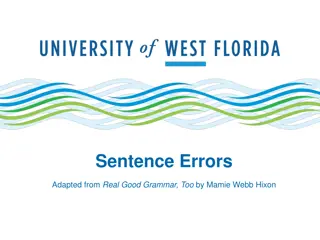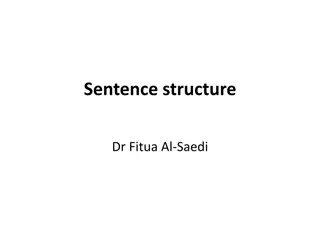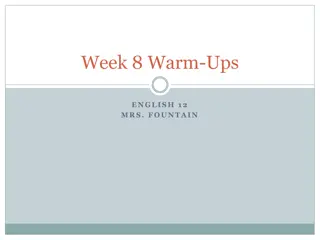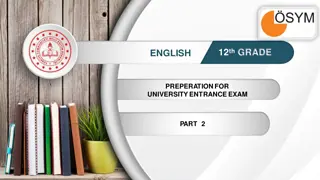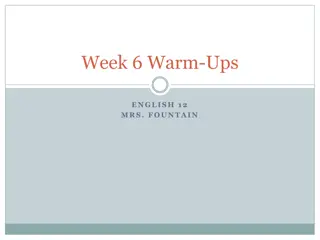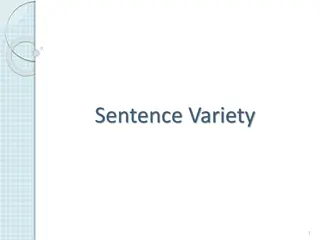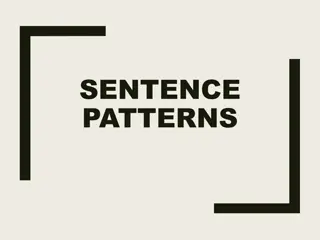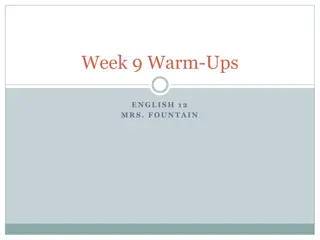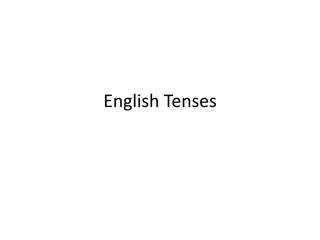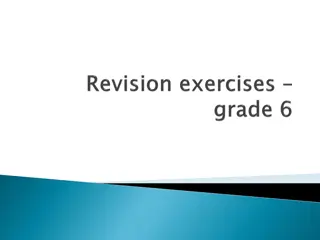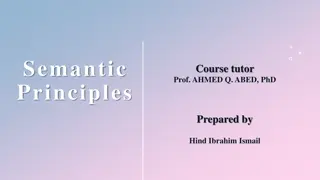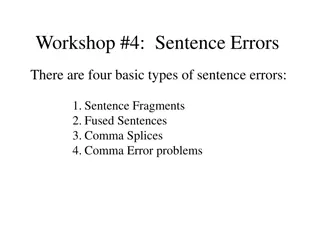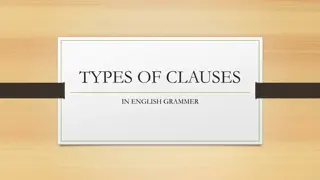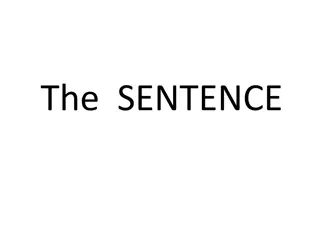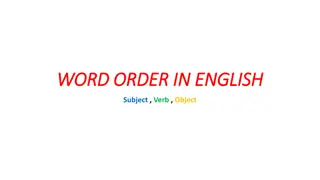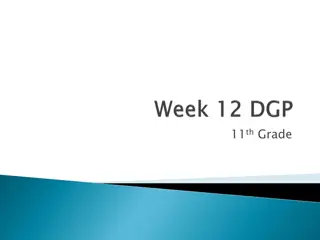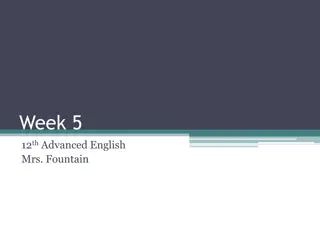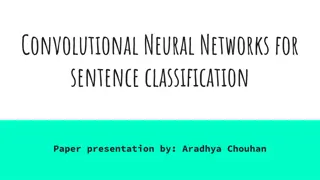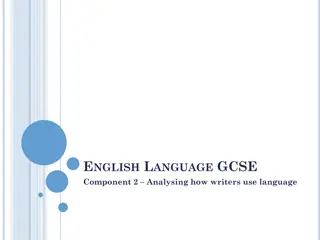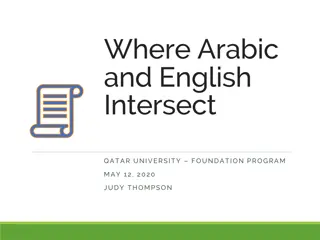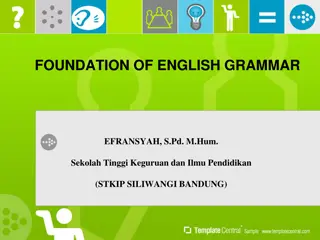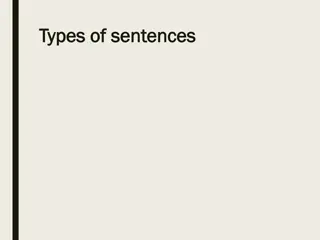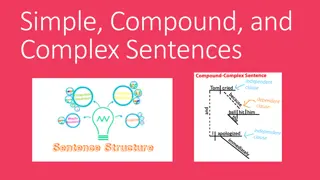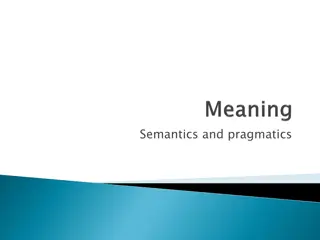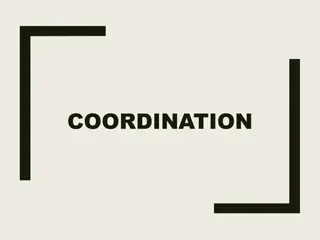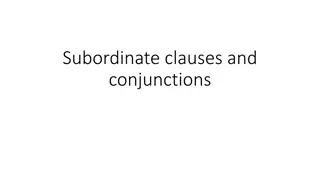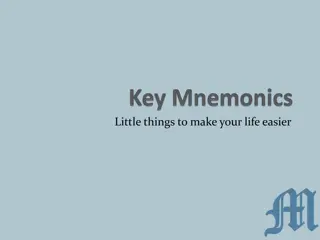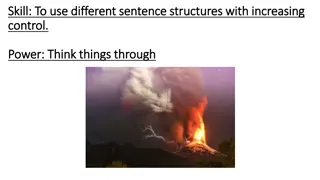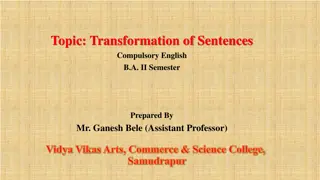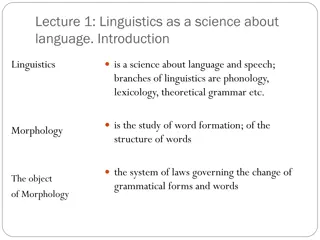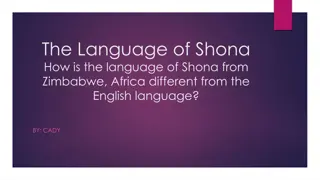Understanding Sentence Structure in English Language
Explore the elements of simple and complex sentences, types of verbs, examples of transitive and intransitive verbs, different object types, and the role of complements in English sentences. Enhance your knowledge of syntax and sentence construction.
Download Presentation

Please find below an Image/Link to download the presentation.
The content on the website is provided AS IS for your information and personal use only. It may not be sold, licensed, or shared on other websites without obtaining consent from the author. Download presentation by click this link. If you encounter any issues during the download, it is possible that the publisher has removed the file from their server.
E N D
Presentation Transcript
Ch.4 syntax The Sentence
Types Simple sentence: He goes home. Complex: She had no house though she was rich. Sentences Elements: subject, verb , object & complement Subject: noun, pronoun, NP, clause
Examples John arrived late. She opened the window. Some people are window shopping only. Get out ! (imperative) Has he left the office? (Question) We decided to promote her. She gives the impression of being very busy. To err is human.
Verbs Transitive & intransitive Verbs constitute one of the main parts of speech (word classes) language. Like other types of words in the language, English verbs are not heavily inflected. Most combinations of tense, aspect, mood and voice are expressed periphrastically, using constructions with auxiliary verbs. in the English
Examples She is smiling in front of the audience. They are selling their company s products to people. He apologized to the teachers. He left this bag here and went outside. He is sitting next to you. She matriculated in Kazan University. My mind is sated with great ideas.
Object an object is a noun, a noun phrase, or a pronoun that is affected by the action of a verb. Objects give our language detail and texture by allowing the creation of complex sentences. He kicked the ball at me. He kicked the ball to me. He said that he will resign.
Object types in English Direct objects are the results of action. A subject does something, and the product is the object itself. For example, consider this sentence: "Marie wrote a poem." In this case, the noun "poem" follows the transitive verb "wrote" and completes the meaning of the sentence. Indirect objects receive or respond to the outcome of an action. Consider this example: "Marie sent me an email." The pronoun "me" comes after the verb "sent" and before the noun "email," which is the direct object in this sentence. The indirect object always goes before the direct object. Objects of a preposition are nouns and pronouns in a phrase that modifies the meaning of a verb. For instance: "Marie lives in a dorm." In this sentence, the noun "dorm" follows the preposition "in." Together, they form a prepositional phrase.
Complement A complement is a word, phrase, or clause that is necessary to complete the meaning of a given expression. Complements are often also arguments. A subject complement is a word or phrase (usually an adjective phrase, noun phrase, or pronoun) that follows a linking verb and describes or renames the subject of the sentence. Also called a subjective complement.
Complement The light in the chapel was warm and soft. Mrs. Rooney was my fourth-grade teacher. My fourth-grade teacher was exceptionally kind. Object complement follows an object as in: They chose him PM. I prefer my coffee black.
Arabic sentence Verbal clauses: Nominal clauses: Subject: explicit & implicit
Arabic verbs Transitive Intransitive Mood Voice Tense Aspect
Arabic verbs Some are monotransitive & others ditransitive as in: (I gave the boy a gift) The two items ( ) & ( ) are not related semantically, but in: ( ) (I found Ali (to be) generous) the 2 objects are related because they can form Topic & Comment. In fact, ( ) is the object complement.
Subject Explicit & implicit ( ) ( Your diligence admires me) In this example, the whole clause ( functions as the subject of this sentence
Sentence patterns in Arabic VS: ( ) VSO: ( ) VSOO: ( VSOOO: ( ) VSOC: ( ) VSA: ( ) VSOV: ( ) )
Arabic nominal sentences Topic & Comment A nominal sentence is one in which the subject is the topic, and a verbal sentence is one in which the subject is the subject of a verb. Consider the following. (The colour of this corundum is blue ) In this example, the subject is the colour of this corundum and it is not the subject of any verb. Hence the sentence is nominal. And the Comment happens to be the word blue .
Nominal sentences Consider another example below. (The diamond sparkles like lightning) Here, too, the diamond is the subject and it is not the subject of any verb. Hence this sentence is also nominal. And its Comment happens to be the embedded verbal sentence sparkles like lightning . One should not confuse the subject of this sentence as being the subject of the verb in the embedded sentence. The subject of that verb is the pronoun within it referring to the diamond remember that the subject of a verb does not precede the verb.
Nominal sentences The topic may be a single word, a phrase. But it cannot be a complete sentence. It is true, however, that when the topic of a sentence is a phrase, that phrase may itself contain embedded sentences. Consider the examples below. Topic Type Translation Example Word The pearl is a type of gem Phrase Polishing the diamond is mandatory phrase with an embedded sentence (The sapphire which I lost yesterday is valuable)
Nominal clauses Moreover, the topic of a sentence cannot be one of the following two things. a prepositional phrase or an adverbial phrase When these entities appear to be the Topic of a sentence, they are in fact the Comment and the order of the sentence has been inverted. Consider the following. I have topaz
Nominal sentences The topic of a sentence is typically definite. This is because using indefinite words or phrases does not usually convey useful information as in a man is standing. The speaker has conveyed no benefit to the listener by saying this so what if a man is standing? Hence the topic will usually be definite. Take: ( )
Verbal sentences Now consider an example of a verbal sentence, as in the one below. The rubies are turning a deep red ) Here the subject is the word rubies and it is the subject of the verb turning red . Hence the sentence is verbal. In fact, we can generalize this to say that any sentence that begins with a verb will definitely be verbal.
Fronting Fronting is a transformation which moves constituents to sentence initial position ( Culicover 1979). Carter (2011)finds that fronting happens when we want to focus on something important ,we bring it to the front of the clause .Winter (1982:16) demonstrates that fronting is a process in which a constituent that normally appears in some position within a sentence occurs at the front the sentence of instead , while a gap occurs in the normal position.
Fronting of Arabic objects ( ) = enclitic pronoun ( ) = restrictive particle ( ) = possessive pronoun referring to the object ( ) = interrogative particle
